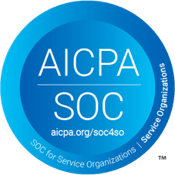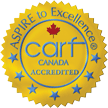As Canada’s population ages, issues of testamentary and financial capacity are becoming more important than ever - particularly when it comes to the execution of wills and the administration of estates.
For independent medical examination providers, capacity assessments play a critical role in ensuring that older adults are protected, decisions are sound, and family disputes are minimized.
Drawing from Dr. Michael Cooper’s insightful presentation “Capacity Assessment – A Practical Approach”, here’s what you need to know about the growing intersection of medical expertise, legal frameworks, and elder care in the context of wills and estates.
About Dr. Michael Cooper
Dr. Michael Cooper, MD, FRCPC, is a Clinical Associate Professor in the Department of Psychiatry at the University of British Columbia, specializing in geriatric psychiatry. With extensive experience in capacity assessments, Dr. Cooper is recognized for his expertise in navigating complex cases involving neurocognitive disorders, psychiatric comorbidities, and elder care.
Why Capacity Matters in Wills & Estates
With over 20% of British Columbia’s population now over the age of 65 - and a rising prevalence of neurocognitive disorders like dementia - capacity assessments are not only medically relevant but legally necessary. At the same time, we are witnessing the largest intergenerational wealth transfer in Canadian history. Ensuring that an individual has the mental capacity to make or change a will is essential to upholding their autonomy, protecting their wishes, and reducing future disputes.
What Is Testamentary Capacity?
Testamentary capacity refers to an individual’s legal and cognitive ability to make or amend a will. To be considered capable, a person must:
- Understand the nature and consequences of making a will.
- Know the extent of their estate (not exact figures, but a broad understanding).
- Recognize who might reasonably expect to benefit from their estate.
- Be free of delusions or cognitive impairments that unduly influence decisions.
This is distinct from general cognitive capacity and is assessed in the specific context of creating or altering a will.
Who Should Conduct the Assessment?
Dr. Cooper emphasizes the value of involving the right medical expert early in the process. While family physicians and geriatricians can play a supportive role, geriatric psychiatrists are uniquely positioned to assess complex cases involving cognitive decline, psychiatric comorbidities, and challenging family dynamics. They bring specialized expertise in neurocognitive disorders and are adept at detecting subtler forms of undue influence or impaired judgment.
Recognizing Red Flags
Some capacity assessments are straightforward ("slam dunks"), but many are far more complicated. According to Dr. Cooper, red flags that indicate a more complex case include:
- Conflicted or blended families with a history of dysfunction.
- A sudden change in behaviour or cognitive functioning.
- Personality disorders (e.g., narcissistic or paranoid traits).
- Undue influence from caregivers or relatives.
- Lack of recent medical evaluations or unknown psychiatric history.
In these cases, the assessment must go beyond basic screening tools like the MMSE or MOCA and instead rely heavily on collateral information, behavioural history, and judgment evaluation.
Undue Influence and Elder Abuse
In the realm of wills and estates, undue influence is a critical concern. Elder abuse - financial or otherwise - is more common than many assume. Approximately 4% of community-dwelling seniors and up to 14% of institutionalized seniors experience some form of financial abuse, according to studies cited by Dr. Cooper.
Red flags for undue influence include:
- Social isolation
- Rapid changes to estate plans
- Over-dependence on one caregiver
- Language barriers or illiteracy
- Signs of fear, confusion, or withdrawal
Medical experts can’t determine if undue influence has occurred, but they can provide an opinion on whether an individual is susceptible to it - a crucial distinction in legal proceedings.
Best Practices: Collaboration is Key
Dr. Cooper outlines several steps to support a successful capacity assessment:
- Ensure the patient has a recent and thorough medical review.
- Provide collateral information about functional abilities, finances, and recent behaviours.
- Frame questions clearly in the Letter of Instruction to the assessor.
- Involve the geriatric psychiatrist early, especially if the case is likely to escalate.
- Consider advance planning and ongoing communication to reduce future conflicts.
NYRC’s assessors often work closely with legal counsel, families, and physicians to deliver thorough and unbiased opinions. Our goal is to ensure that each assessment is both clinically sound and legally defensible.
Final Thoughts
Capacity assessments are not just about ticking boxes - they are about protecting dignity, independence, and legacy. As medical and legal professionals increasingly intersect in wills and estates cases, the importance of expert-driven, nuanced capacity assessments continues to grow.
Whether dealing with testamentary decisions, enduring powers of attorney, or concerns about undue influence, NYRC is committed to providing clear, objective, and comprehensive capacity evaluations that support seniors and safeguard their rights.
Want to Learn More?
Contact our team to learn how we can support your needs for capacity assessments related to wills, estates, or powers of attorney. Our expert team includes specialists with experience in geriatric psychiatry, neurocognitive disorders, and complex family dynamics.



